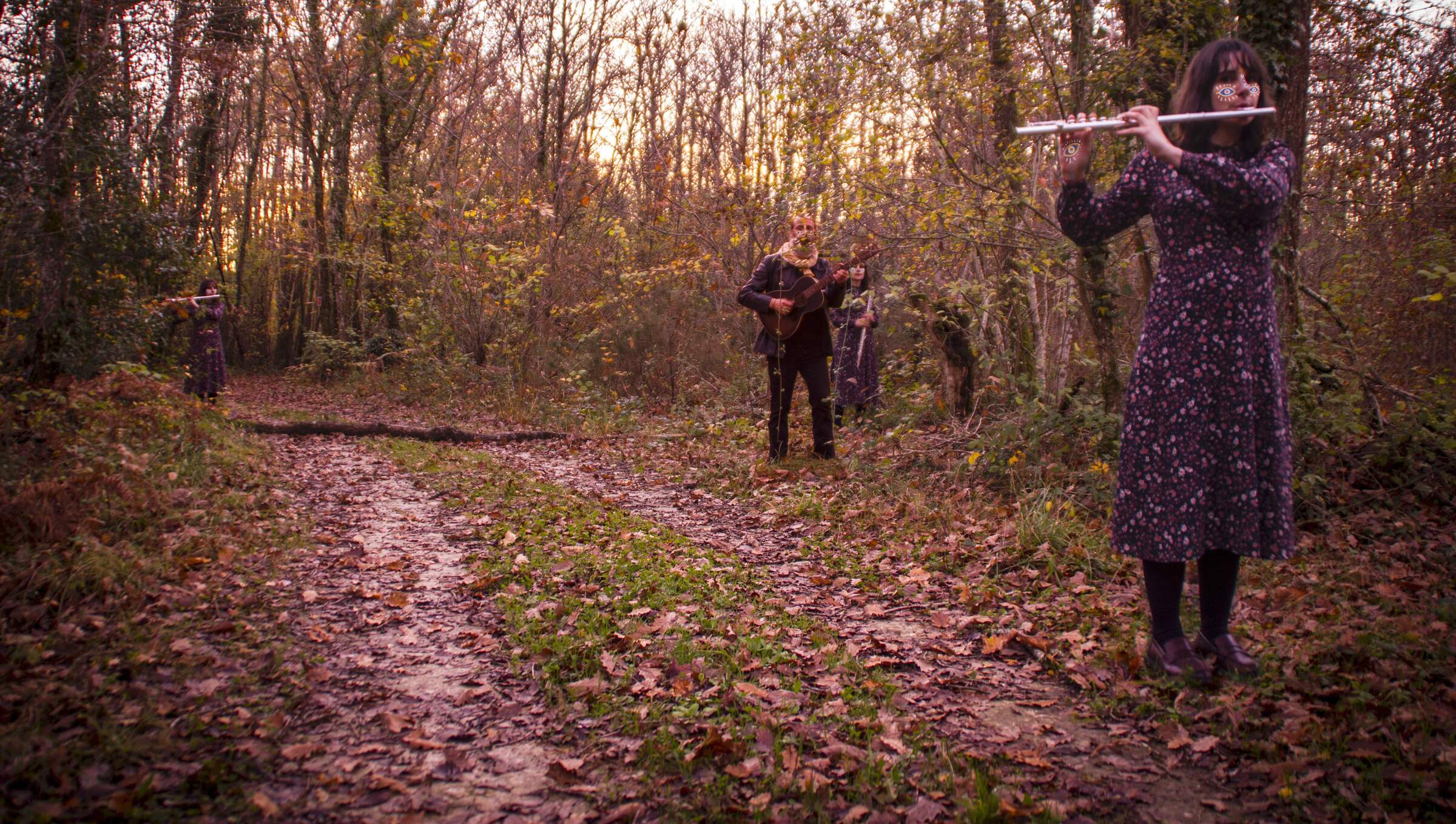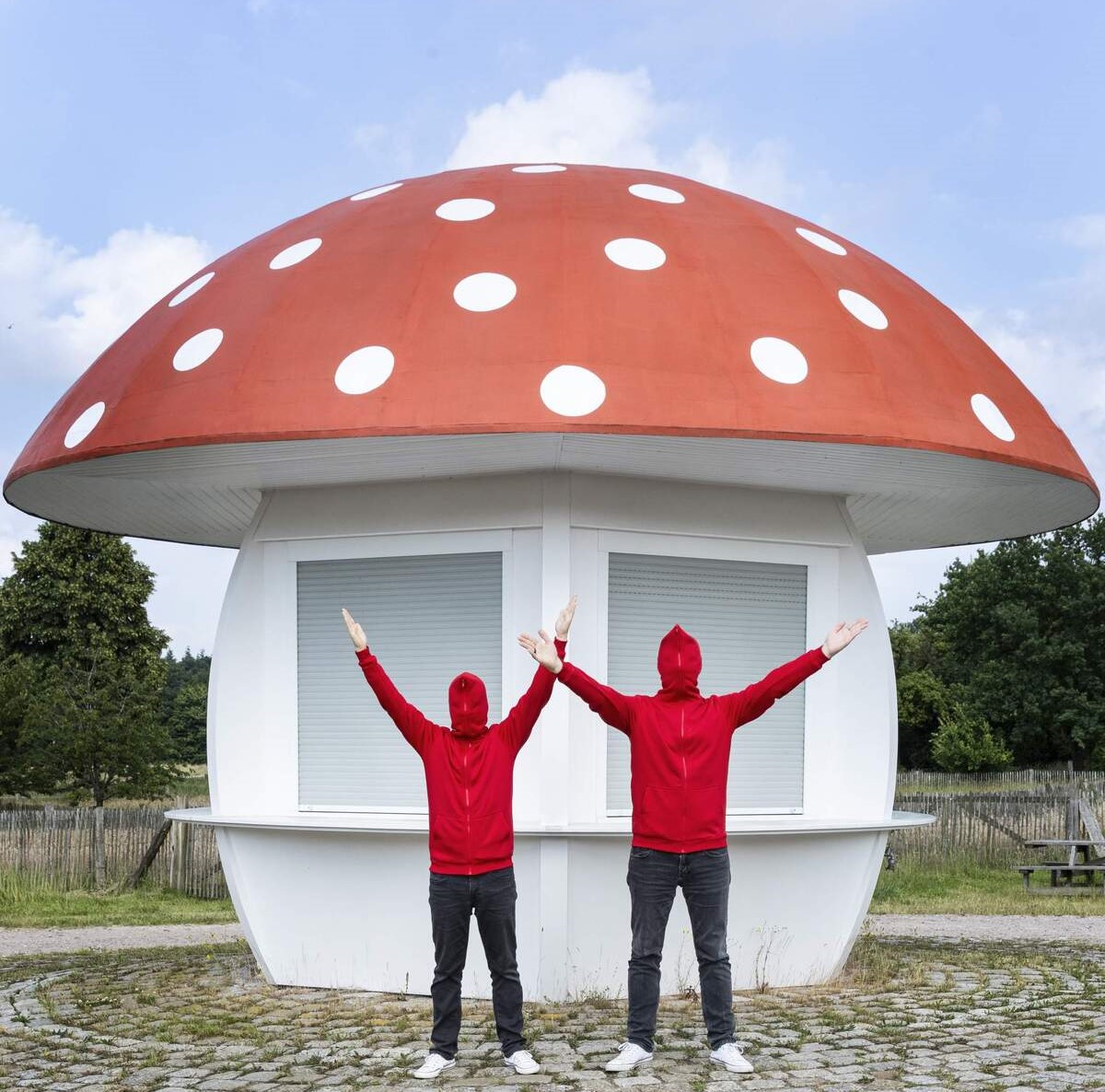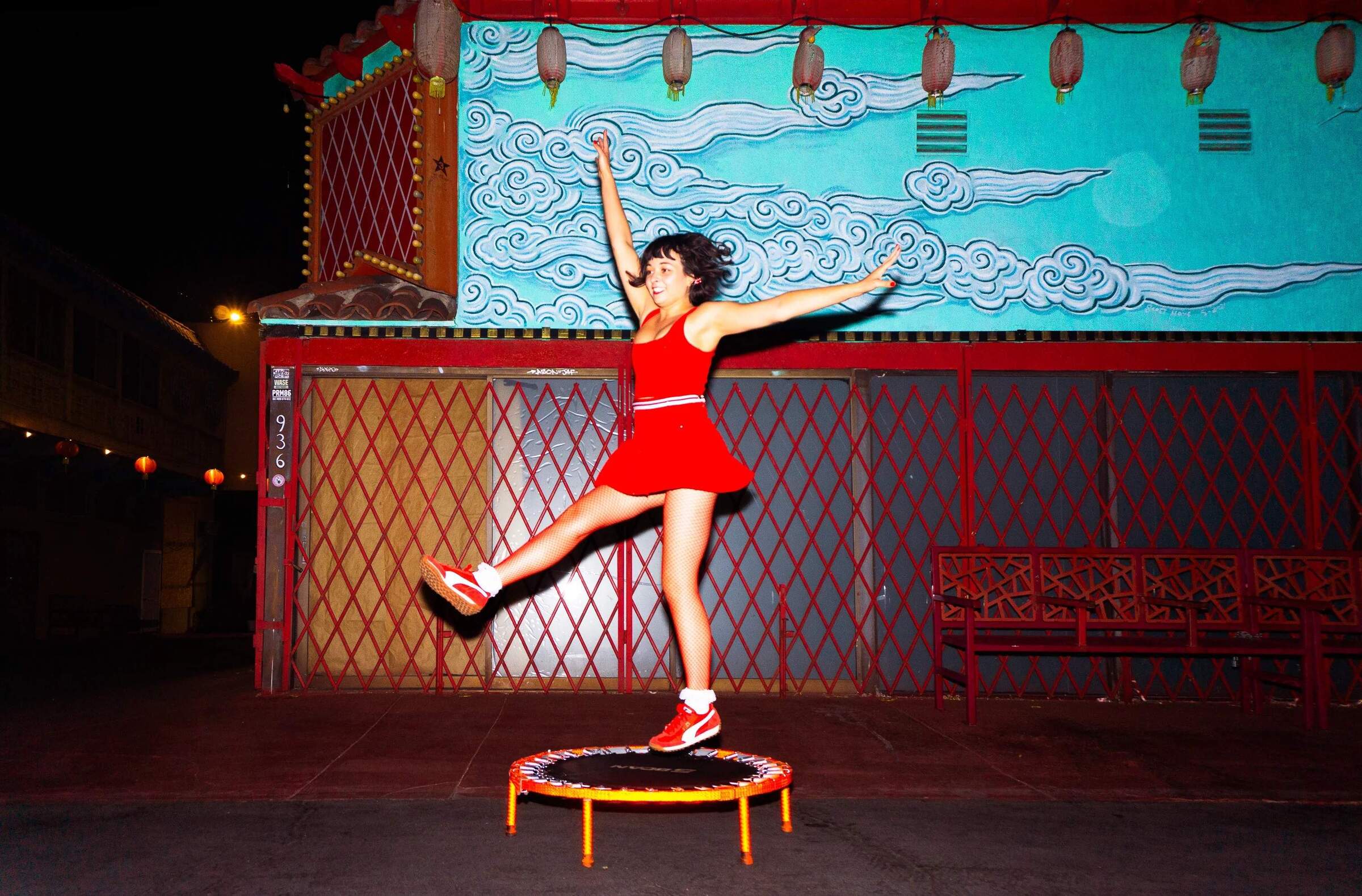Anandammide | Interview | New Album, ‘Eura’
In the shimmering realm of psychedelic folk, Anandammide emerges once again, unfurling the kaleidoscopic tapestry of their sonic odyssey with ‘Eura.’
Led by the enigmatic Michele Moschini, the Parisian collective embarks on a sonic odyssey through the labyrinth of human emotion and existential inquiry.
With ‘Eura,’ Anandammide transcends the confines of conventional soundscapes, enlisting a cadre of virtuosos hailing from across Europe to sculpt an auditory panorama of haunting beauty. Lisa Isaksson’s ethereal contributions, in particular, imbue the album with a poignant sense of longing, echoing amidst the swirling currents of Moschini’s cosmic vision.
As the needle kisses the grooves of ‘Eura,’ listeners are beckoned into a liminal space where the boundaries between reality and reverie blur. Through Moschini’s plaintive vocals and transcendent instrumentation, Anandammide invites us to confront the ineffable mysteries of existence, journeying through the labyrinthine corridors of the human soul in search of elusive truths.
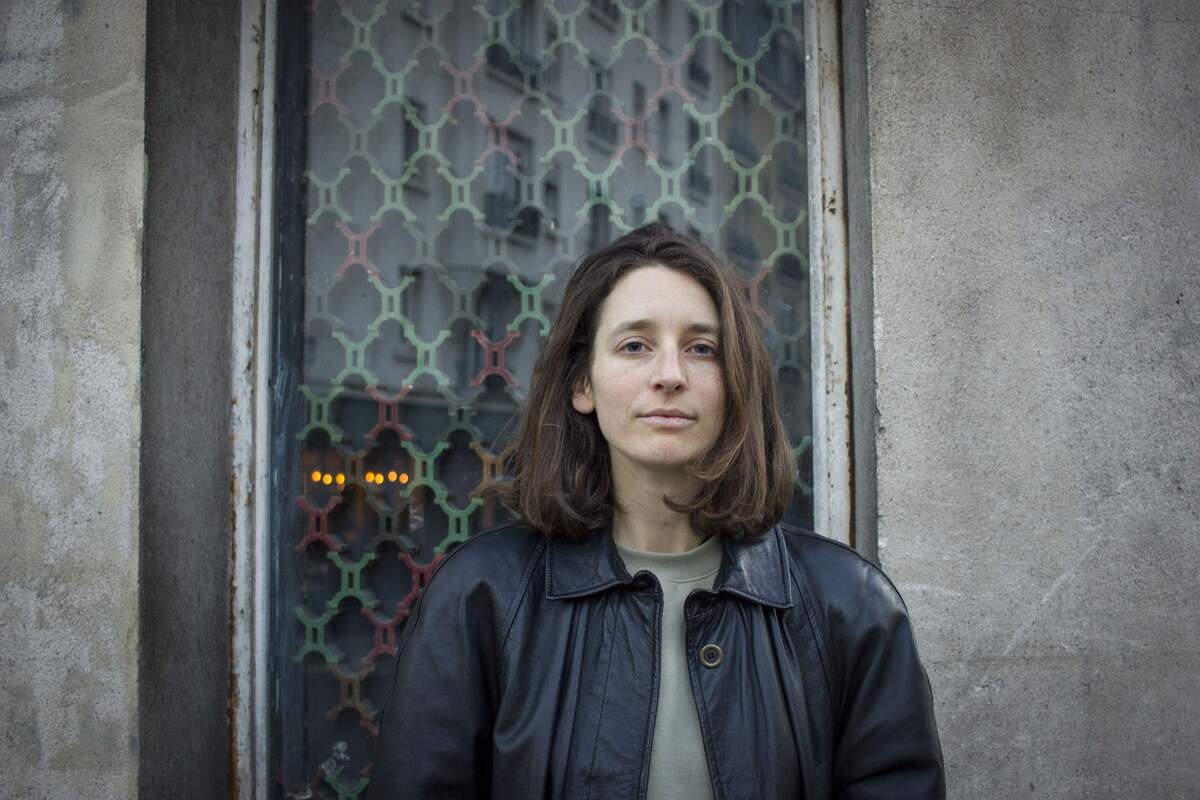
“In my dreams, capitalism and nations disappear, and we live in Anarchy.”
Can you tell us about the inspiration behind the album ‘Eura’ and how the concept came about?
Michele Moschini: There are several themes behind this album. I would say that the environmental crisis and the war winds are the main subjects. The feeling of being close to an end, the degradation of society, and capitalism leaving the majority of the world population struggling led me to wonder what our place in time and space is. Everything seems futile once you start thinking about it. Then I came back to a drawing by Dino Buzzati hung on the wall in my parents’ house in Italy. It was a four-eyed lady with a late sixties style. A few years ago, I found out that Buzzati had made a comic book about this lady, whose name was Eura.
The title ‘Eura’ suggests a significant meaning. Could you elaborate on what it represents within the context of the album?
Eura is Eurydice, but for me, she’s just an ideal that the drawing I had before my eyes since my early childhood has put into my mind. Have I been looking for Eura all my life? Maybe, but then I realized that the struggle was not worth it. No more tragedy, no more passion, I’ll be the ocean’s plumber who’ll stop the flood.
At first, I thought about having a dark side and a bright side instead of A and B on the album. The dark side would start with ‘Carmilla’ (which has been inspired by The Time Machine by H.G. Wells, though the name comes from Le Fanu’s famous book) and the bright side with Eura. I realized that this dark/bright opposition did not fit the album, that Eura itself sounds joyful, but it isn’t. I had someone saying that “serein” is the word to describe this album, but I guess he didn’t catch the lyrics. So Eura is the point from where I start looking at the world in a realistic way.
In what ways does ‘Eura’ differ from your previous works?
I’d say that the differences are both in the music and in the lyrics.
‘Earthly Paradise’ was more acoustic, with heavy ancient music influences, and the lyrics were mostly about existential speculation, like is there a God? (NO, by the way), but the album was also political in some way when talking about how far the Utopia is, or when dealing with people drowning in the Mediterranean Sea.
I would say that ‘Earthly Paradise’ sounded darker, maybe because most of the songs were written by night, while ‘Eura’ is brighter, though the lyrics are far from joyful. If I had to go back in time to when I was singing and writing music with Floating State more than twenty years ago, I’d say that I’m on the same wavelength. My contribution to the band’s music consisted mostly of utopian or pessimistic lyrics and folkish tunes with a medieval feel.
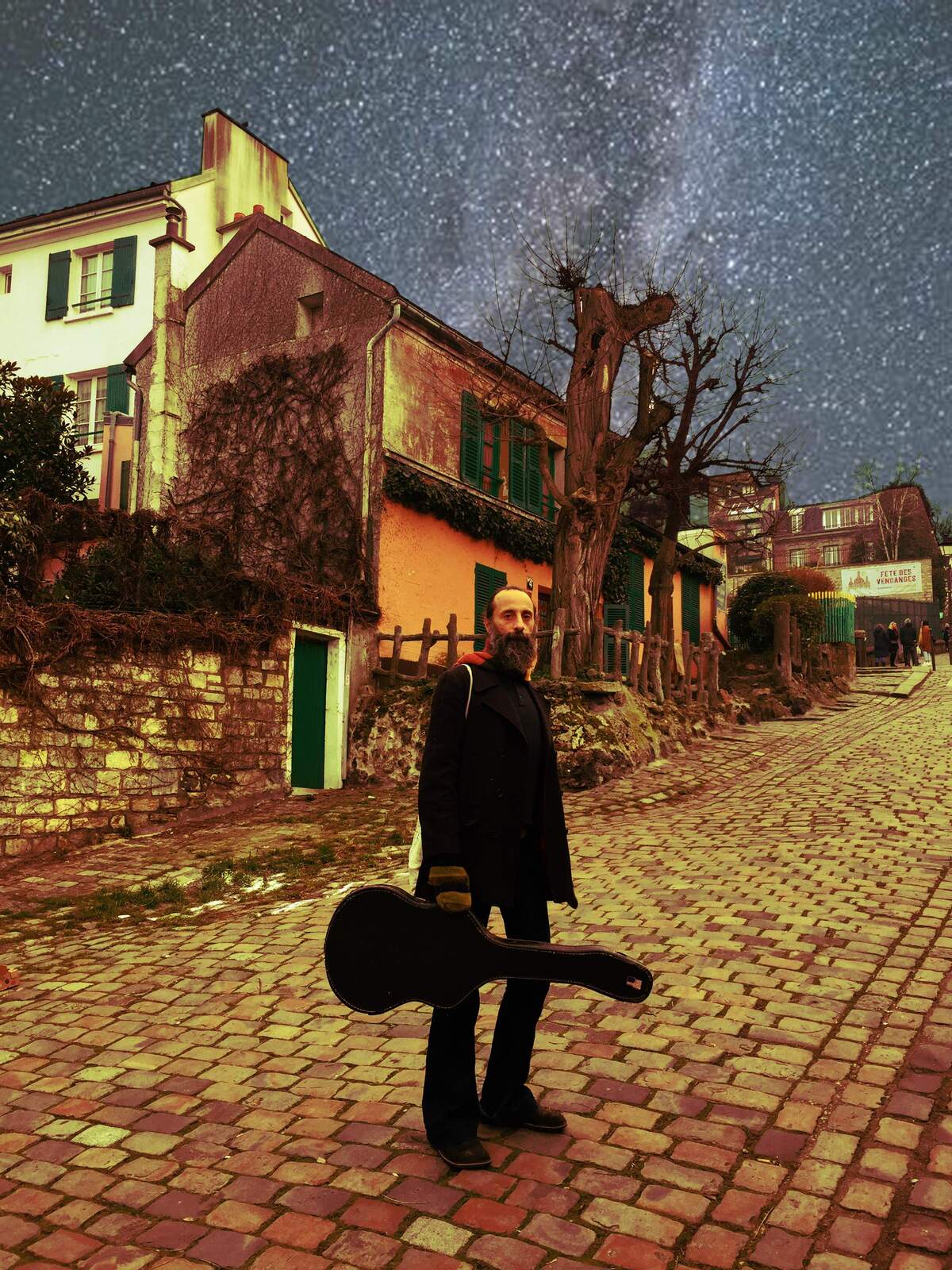
It would be fantastic to hear a bit about your background and how you became a musician.
I don’t consider myself a musician, but mostly someone who happens to write songs in some way. I have had a very fragmented musical education, starting from piano lessons when I was a kid and ending with singing and solfeggio lessons when I was at the university. My father wanted me to play the organ, and I somehow found myself taking piano lessons when I was 11, but I wasn’t happy with it, so I stopped when I was 13. I accidentally discovered seventies rock when I was 14, and four years later, a friend gave me a tape of Jesus Christ Superstar. That music made me want to sing, and one day I was invited to join a band that later became Floating State. I’ve been singing with them for a decade, until I was too busy with my thesis. After graduating, I moved to France, bought a guitar, and tried to learn on my own, but it took me ten years to start working on my songs seriously.
So what led you to form Anandammide?
Well, I’ve been recording songs with my friend Gianluca Graziano, who is a very prolific writer, and one day he came to Paris with his band. We played a few songs together as an opening act, and my friends liked them. Owen Thomas then told me he would like to join if I needed a bass player. It was the 1st of December 2017. That was the spark. I started writing songs and in a few months, I had enough to perform small gigs. I gathered a few friends, since my songs included cello, violin, and flute. I tried to turn it into a stable band, but I finally came back to considering Anandammide as a solo project with several musicians joining for recordings and playing live from time to time.
How would you compare your latest album to ‘Earthly Paradise’?
I wouldn’t say that they are like day and night, but that’s partially true. One has been written by night, the other by day, as I’ve said. One sounds darker, acoustic, and a bit medieval or baroque, while the other is mostly brighter, a bit more electric, with more drums and fewer ancient music influences. I don’t know if I was more mature when I wrote ‘Eura’ than I was when I wrote ‘Earthly Paradise,’ but I was surely in a different mood and was living in a different way. ‘Earthly Paradise’ has in it all my strolling through Scandinavia of the last years, while in ‘Eura,’ that Scandinavian feeling has been lost, but the darkness stays in the lyrics.
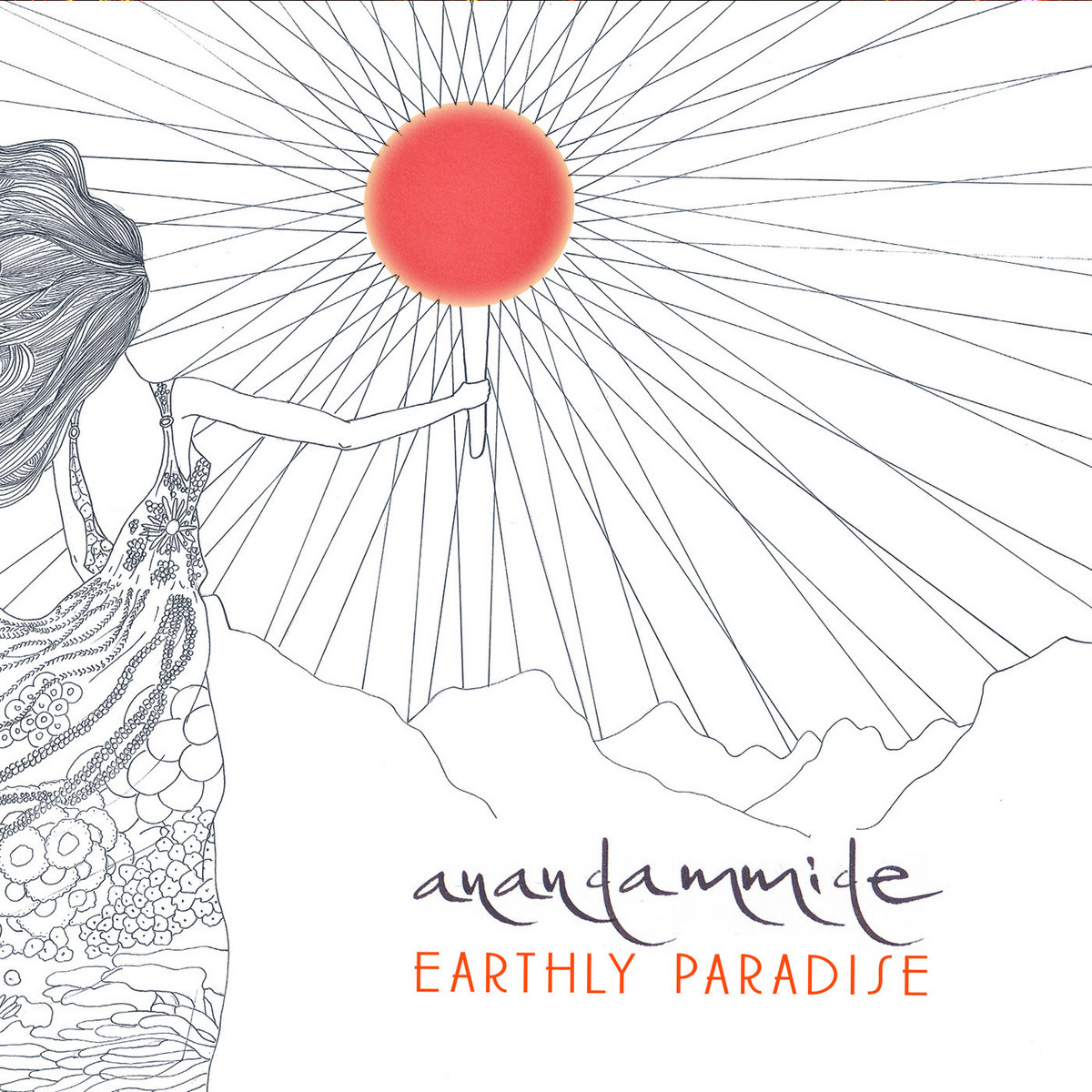
Lyrically, what themes and messages are explored throughout the album?
This album’s lyrics are pretty much influenced by the world’s situation, wars, climate change, and the feeling of living in a time of crisis. ‘Carmilla’ talks about capitalism and environmental destruction, ‘A Song of Greed’ is about the greedy exploitation of natural resources, and in ‘Post-Atomic Reverie,’ a lonely person dreams of traveling and enjoying life in a destroyed world, and so on. ‘Phantom Limb’ is about antispecism, ‘The Orange Flood’ started as a joke about my obsession with orange objects and finally became an anti-war song. But there are also songs that talk about dealing with life and death, like ‘I Am a Flower’ and ‘Lullaby No.2,’ but also ‘Dream No.1,’ starting from my mother’s childhood memories of WWII to imagine a psychedelic world where aircrafts throw sweets on children instead of bombs.
All these oppressive feelings led me to write ‘The Anchorite,’ which is supposed to close the album on a hopeful note, imagining a way out through nature and isolation. Without going back to a Pre-Raphaelite society, I think that we can live better than this. In my dreams, capitalism and nations disappear, and we live in Anarchy.
Can you walk us through the recording and production process of ‘Eura’? Any particular challenges or highlights during the making of the album?
This is a homemade record. Everything was recorded at home except for drums, of course. When I write a song, I add instrumental parts and write the partitions for all of the instruments, but I only give the bass player a chords grid most of the time. I sometimes have ideas for an instrumental part while working or biking to work, so I just keep on singing the parts in my head until I can write them down.
When I record, I start with the guitars and vocals and add synthesized violins, cellos, and flutes exported from the partitions, along with some lead synth, just to have a basic recording to work on. It’s weird, but drums and bass guitar were recorded later and not at the very beginning (except for ‘Eura,’ but that’s another story). I had to bring my equipment around Paris to record bass and cello, and then go to Saintes, in the West of France, to record all the flutes at Audrey Moreau’s country house. There was a forest nearby, and that’s where we shot the pictures for the album cover.
Then came the remote recording. I dreamed of having Lisa Isaksson sing one of my songs and was really happy when she agreed. I really think that she’s an underrated musician. When I sent her the album recordings (missing many instrumental parts and roughly mixed), I was glad to see that she liked the music. She had to choose one song, but we ended up including her voice in two more songs, and she added very nice harmonies to them. I had to re-record ‘Eura’ from scratch to fit her voice, and it was totally worth it!
From Stockholm to Apulia, where two old friends were waiting to record their parts. Lelio Mulas has played the bass on half the record. His style is less minimalistic than Pascal’s, and it fit perfectly with some specific songs. Lorenzo Castigliego has played a guitar solo on ‘Eura,’ starting from ‘Starless and Bible Black’s’ guitar tone.
The final touch before mixing was given by my Gem Jumbo Organ, but I also added some more synth here and there. So, basically, songwriting starts with a guitar and a vocal line, and all the instruments are slowly added until I think the song is complete.
David Svedmyr worked on the final mix starting from the pre-mix. It’s not easy to work on a mix remotely, but I know the kind of sounds he likes and he understood what I wanted, so that Oscar Larizza (Stockholm to Apulia again) could add his final touch and give the record the warmth and brilliance I asked for. It took four months to do all this work.
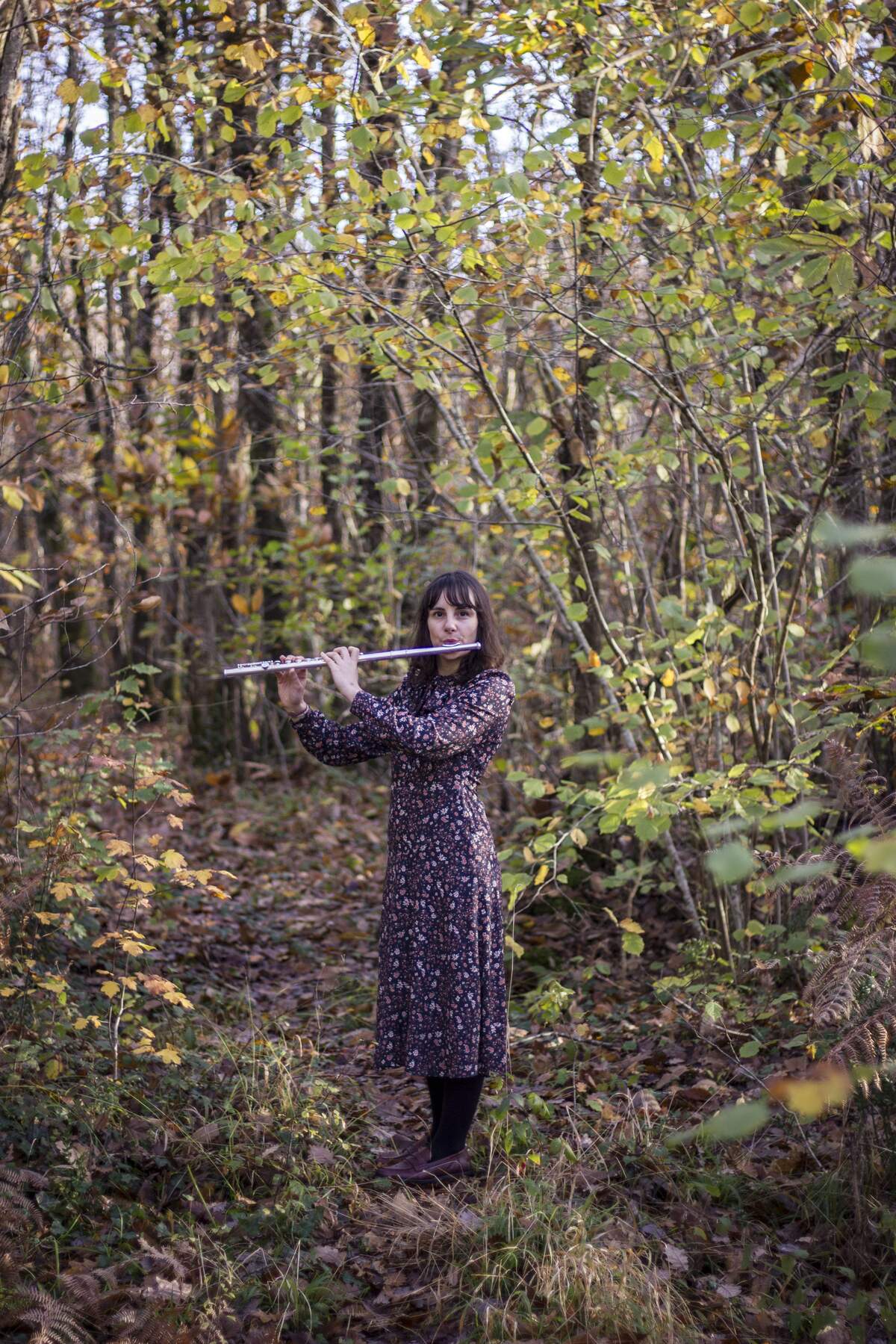
If ‘Eura’ were to be performed live in a unique location, where would you choose?
I’ll use my imagination and include places where I’ll never perform. If I had to choose, I’d say in a fjord in Norway or in my hometown’s cathedral in Italy.
Do you have any active side-projects going on at this point?
Not really at the moment, but I’ll probably play some synth on ME.GO’s new album (it’s the Italian pop-psych band led by my friend Gabriele Pigazzini) and maybe record an EP with another friend later this year.
What are some future plans?
Rest, maybe? I think that I’ll just try to make this album go around the world as much as possible and play regularly here in Paris and maybe elsewhere if I have the chance to. I’ll probably play a bit with my friends Lisa Isaksson and David Svedmyr from Me and my Kites in Sweden next summer. I won’t work on new music for a while; I’ll mostly focus on architecture until I feel like writing songs again.
Let’s end this interview with some of your favorite albums. Have you found something new lately you would like to recommend to our readers?
I have to say that I rarely find new music that I like, but there are a few exceptions. First of all, I would recommend Me and my Kites and their various incarnations (Lisa o Piu, Second Oracle, Our Solar System). There’s an American singer living in Paris that I like a lot, known as The Duke of Norfolk. I also love Sam and the Plants, which is actually Sam McLaughlin I think. I don’t know if he’s still making music, but I have a couple of his albums from around 2011 and I love them. Though I’ve been listening to progressive for many years, I tend to listen to more psychedelic and folk stuff because I’m tired of hyper-technical music that often lacks emotion. But I still love Anekdoten, and I recently discovered Needlepoint. I’m in the mood for soft folk ballads from somewhere in the UK, something that could remind me of Bert Jansch, like Alasdair Roberts maybe. I should start playing little acoustic songs myself; I just need to learn to play the guitar properly.
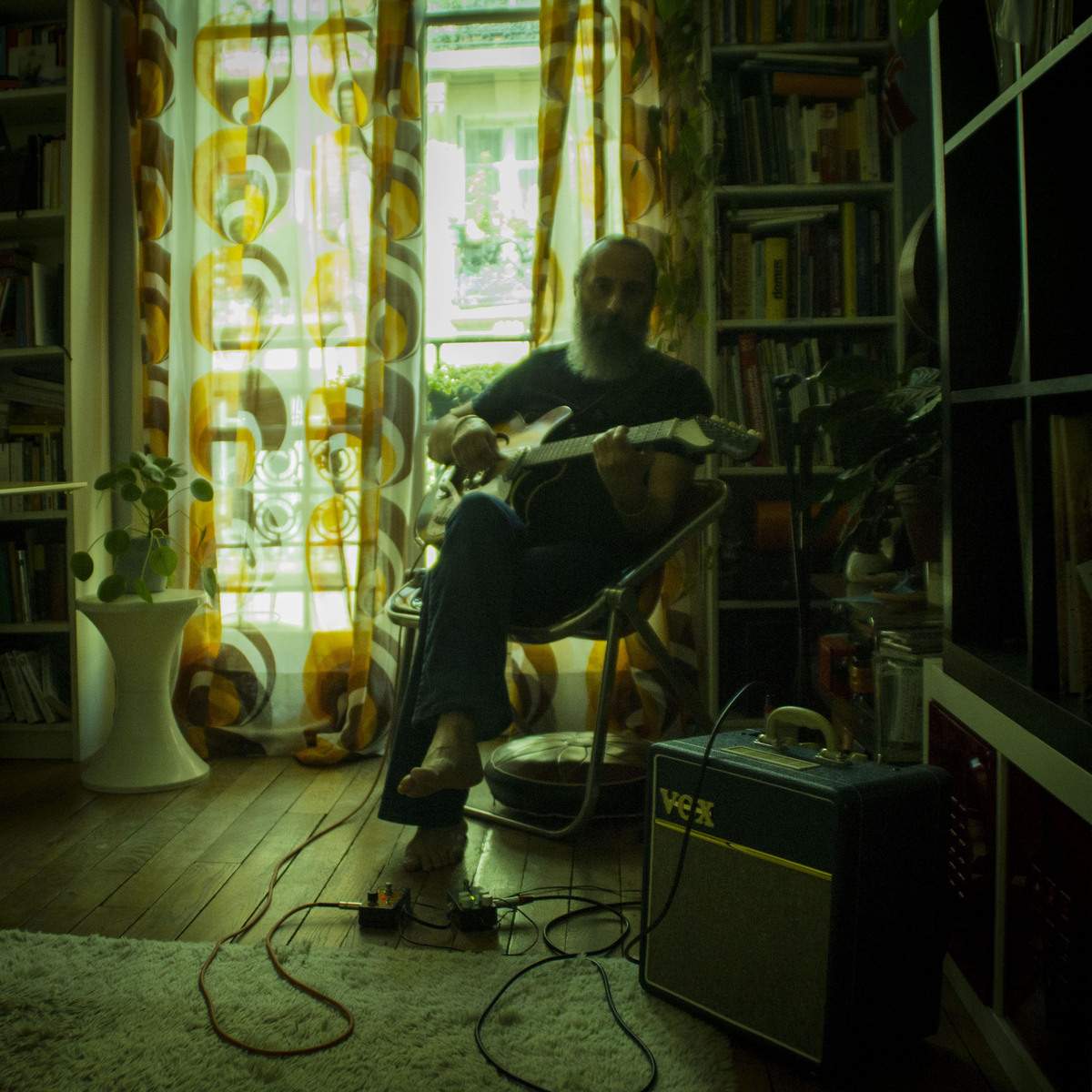
Thank you. Last word is yours.
Thank you for having me. I’d like to extend my gratitude to the musicians who joined me on this album (Audrey Moreau on flute, Stella Ramsden on violin, Pascal Vernin and Lelio Mulas on bass, Lisa Isaksson on vocals, Lorenzo Castigliego on electric guitar, and Sébastien Grignon on cello), as well as David Svedmyr and Oscar Larizza for mixing and mastering, and Sula Bassana from Sulatron Records, who is my partner in crime on this one.
I know that this kind of music is far from mainstream, but I hope that it will be appreciated at least in our little niche. It may even help rediscover ‘Earthly Paradise,’ our first album, which is quite unknown to the world.
I’m not that into streaming platforms; it took me three years before uploading the previous album, so the only way to have a listen to ‘Eura’ is on Bandcamp at the moment.
Viva l’Anarchia!
Klemen Breznikar
Anandammide Facebook / Instagram / Bandcamp / YouTube
Sulatron Records Official Website / Facebook / Instagram / YouTube
‘Eura’ by Anandammide | Album Premiere

